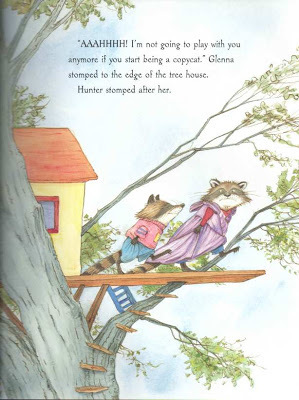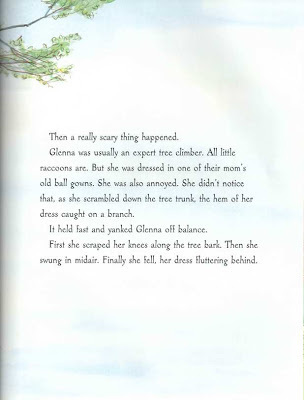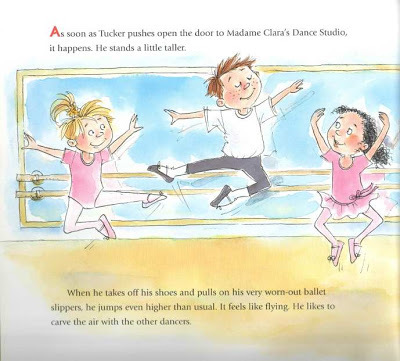There is a phrase that I wish would cease to appear in picture books. (Okay, there are two. One is “There is…”)
The other phrase is so common that it probably goes unnoticed by most readers.
That phrase is “Then it happened” (or variations of it, such as “That’s when it happened,” etc.).
Even some otherwise charming books employ the phrase. Here are examples from Hunter's Big Sister by Laura Malone Elliott and The Only Boy in Ballet Class by my old friend Denise Gruska (this is The Only Phrase in the Book I'm critiquing, Denise!):



I know I've encountered other instances but they're not coming to mind; as I come across them, I will revisit this post to insert them.
I understand why the phrase is used. When a story contains a sudden shift in action, a writer feels he must set that up. Summoning a “then it happened” comes so naturally, it’s practically punctuation.
But I feel it is a weak segue, a hollow way to propel the reader to an exciting event in the next sentence. Why not just get to the good part?
“There is” (and its variations, such as “There are”) can always and easily be rewritten in a stronger way: “There is a baby duck waddling around on my front step” is more muscular as “A baby duck is waddling around on my front step.”
Similarly, “then it happened” can always be rewritten or often simply removed; as proof, reread the above passages but leave out the phrase. Missing anything? I don't think you will.
I feel writers have an obligation to entice readers not with familiar (and therefore empty) phrases but with original expressions that convey excitement through concrete action.
This concludes today’s Nitpicking 101 lesson. Your homework: post something nitpick-y about one of my books. Education never dies.

